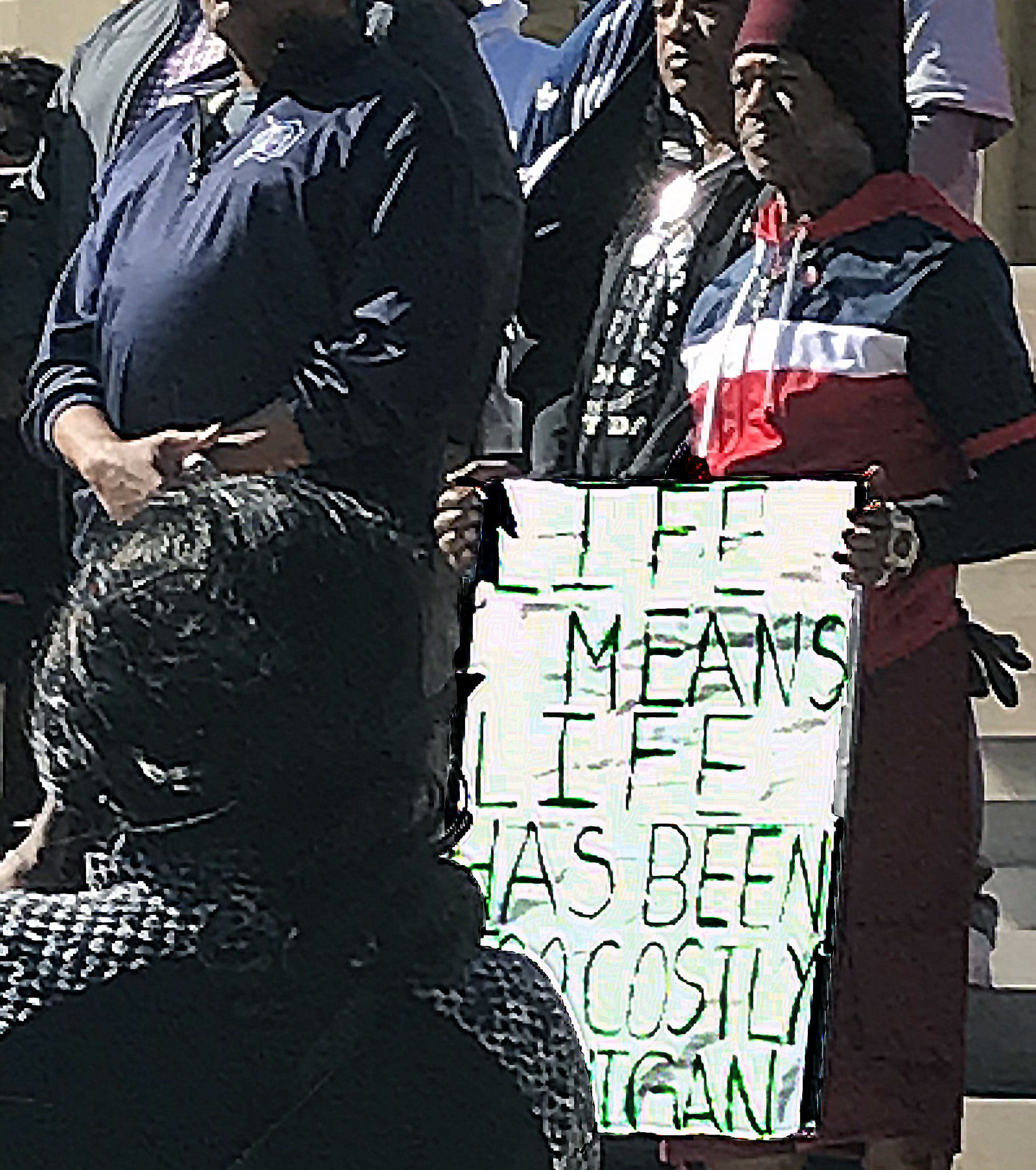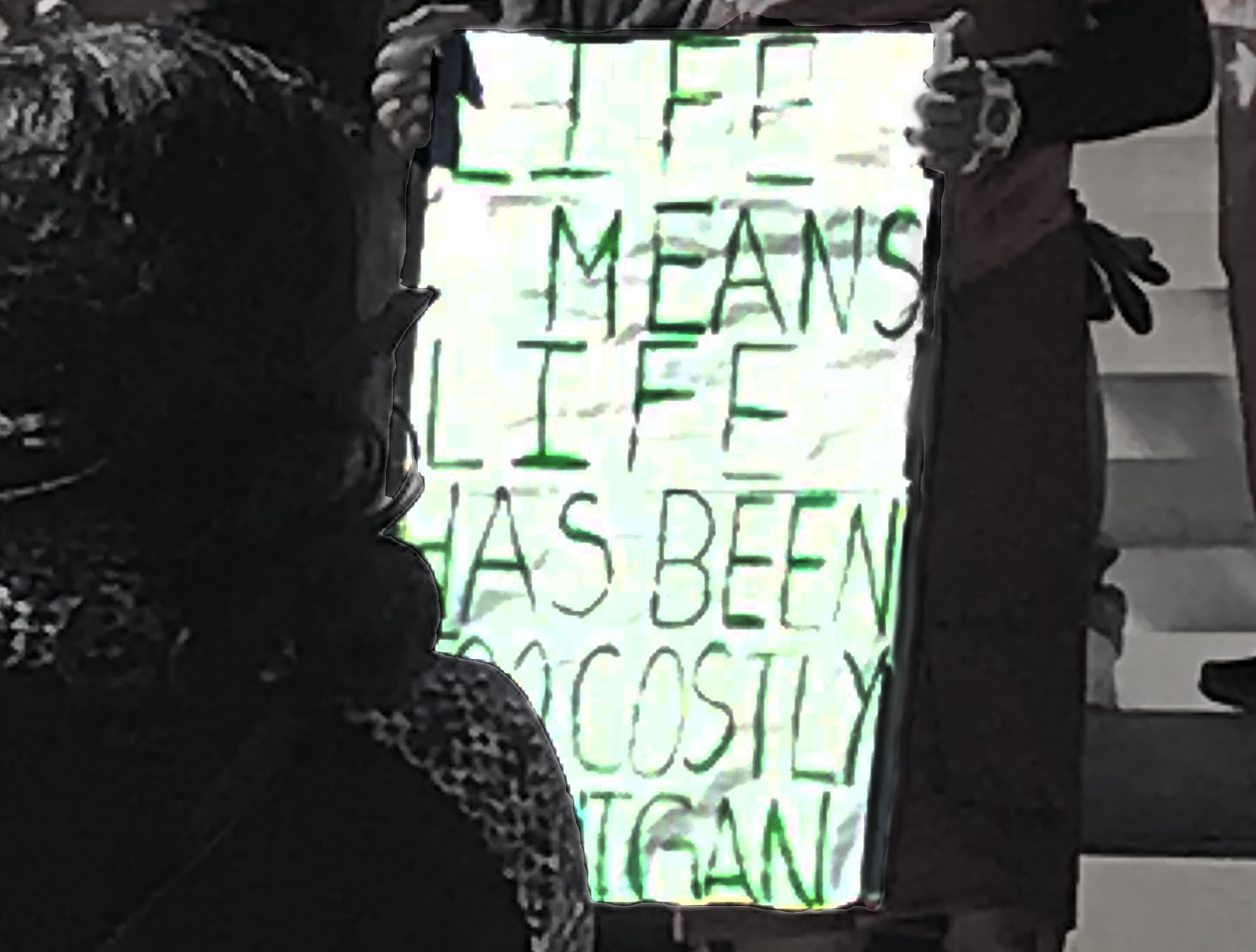Last week, on October 10, Just Us Now and the National Lifers of America Inc. held a community day event at the state Capitol.
The crowd was an eclectic mix of people who have served and been released from life or long sentences as well as their loved ones. Most in attendance wore shirts with pictures of their incarcerated loved ones, calling for their release. They held signs highlighting different issues faced by those serving long sentences.
“Life means life has been costly for Michigan” read the sign held by Kenneth Foster-Bey, the lead plaintiff in the important litigation regarding parole eligible lifers. The Foster-Bey case was a federal class action lawsuit filed in 2005 regarding changes to length of time to be served on a parole eligible life sentence before they could be considered for parole.
Prior to 1992, parolable lifers were eligible for parole after serving 10 years. However, in 1992 there were substantial changes to the composition and procedures for the Michigan parole board. One of the changes was the adoption of the belief that “life means life.”

Kenneth Foster-Bey holds a sign reading “Life Means Life has been costly for Michigan” at a community day to call attention to the growing numbers of people serving life sentences in Michigan prisons.
In Foster-Bey’s lawsuit, it was argued that these changes were retroactive and therefore unconstitutional. Initially in 2008, a district judge agreed, and parolable lifers sentenced prior to 1992 were re-interviewed and some were released. However, in 2010, the Sixth Circuit Court of Appeals reversed the decision, and the U.S. Supreme Court declined to review the case. That effectively stopped the re-interview process for parolable lifers sentenced before 1992.
Throughout the day, dozens of people had the opportunity to speak to the crowd about a variety of topics. Primarily, there were family members who spoke of their incarcerated loved ones, their memories and the challenges of having a loved one serving a long sentence. Advocates spoke in solidarity with the hope for reform.
The keynote speaker for the event was Ashley Nellis, senior research analyst with The Sentencing Project and the co-author of the book The Meaning of Life: The Case for Abolishing Life Sentences. In addition to putting Michigan’s use of life incarceration in context of the rest of the country, she highlighted one of the new projects: Campaign to End Life Imprisonment. The solution proposed to address the issue of life and long sentences is a 20-year maximum sentence. As discussed in an earlier blog about this work
Decades of criminological research support this proposal. It has been consistently found that involvement in criminal behavior decreases as people age. Essentially, many of people age out of crime. Further, while those incarcerated are becoming less like to be involved in criminal behavior, they are also becoming more expensive to incarcerate.
Additionally, several members of the Michigan Legislative Black Caucus came and made comments on their way to a meeting.
Our Work
This event was of interest to Safe & Just Michigan as a major focus of ours are issues of length of stay in prison. More than 10,000 of the people incarcerated in Michigan are serving sentences with minimums of 20 years or greater; this is about 25 percent of all people incarcerated in Michigan. Further, more than 5,000 people in Michigan prisons are serving a life sentence. Research has shown that after 20 years most people who are incarcerated can safely be released back into the community.
We are working on a report to understand who is serving life sentences in our state. This is important because in order to continue to make meaningful decreases on our states prison population, we need policy changes that address the thousands of sentences that are 20 years and longer, while keeping our communities safe.
-Anne Mahar
Research Specialist

